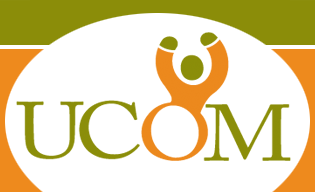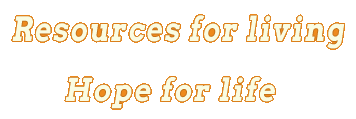Being nice or Doing Good?
September 30th, 2016
What does it mean when we say that UCOM is a faith-based organization? Faith-based for us is not preaching or proselytizing. It is people living out our faith together every day. Maybe we can capture it as a contrast between being nice and doing good. Being nice is not saying what we think until the subject is out of hearing range. Doing good is just doing good.
Doing good gets messy.
We can start the day at UCOM with all the carpets vacuumed, the chairs arranged properly, the shelves all neatly stocked with food or books or clothing; but it isn’t going to stay that way. Not with upwards of 100 families visiting us some days. Not when food shelves need to be stocked three or four times in the course of an average day. Not when children act like children, and bananas get stepped on and shopping carts get jostled on our lovely hardwood floors. So we choose to do good, rather than to look nice all day.
Doing good is uncomfortable.
If we are not willing to move out of our comfort zone, we can be nice (“Have a nice day.”), but we can’t do good.
At UCOM we do what we do BECAUSE of our faith that this is the right thing. You don’t have to pray to any particular God to be our neighbor. You can give and receive at UCOM regardless of your faith. Faith-based is about our faith—not yours.
Everyone comes to UCOM with our own baggage, and we accept one another as we are.
Addicted? If people with addictions ask, we can recommend places for help, but if what they want is a sandwich, we have lots of those.
Justice involved? We work with the court system, and we may have up to 40 volunteers who are helping us in order to pay their debt to society. Most of us don’t know which people are from the local church or community and which are doing court-ordered community service. We are all in this together and everyone is treated equitably. A large percentage of our “justice-involved” volunteers see our Community Development Manager and prepare themselves for a job or for training for a career. Some of them come back to work for us because they are in trouble again, but many go on to a happier life because they reached out to us.
Different religion from us or no religion at all? That’s God’s department. We are there to help with their identified needs. People get what they need when they come through our doors. Whether we are comfortable or not, everyone gets treated well. Our job is doing good.
People with disabilities? When UCOM began to intentionally involve people with visible cognitive or physical disabilities, we all had much to learn. We were uncomfortable because we didn’t know how to be present to everybody. Little did we know that the things we had to learn, our neighbors with disabilities were glad to teach us. In our first “focus group” five years ago, among the participants was a young woman who has some cognitive issues and some mobility disability. When I asked that group, “What can we do to make UCOM the kind of place you’d want to volunteer?” our new friend said, “Just treat us like you would anybody else.” ‘Nuff said. That became our mantra at UCOM, and now we have a mixture of people of many kinds of abilities planning and building and volunteering and gardening and teaching and learning together how to do good.
Doing good is risky.
Being nice probably never got anyone into trouble, but doing good is risky, even dangerous. When people under Nazi occupation decided to do good for Jews, homosexuals, or anyone considered an enemy of the state, these good people put their lives on the line. When we are willing to reach out to those whose race, religion, sexual orientation or identity or mental health issues are different from ours, we risk our reputation, agencies risk our funding, people risk our safety…It is risky business.
It is easy to be nice to most of the people we see at UCOM. Probably 90% of the people who come our way are as friendly as they can be, trusting and willing to help their neighbors. There is nothing to rankle our general inclination to be nice. It is the other 10% who are broken, damaged, afraid, alone…they need our time and energy even more.
We could be nice to everyone we meet, but we have not done good until we have done what we can to empower people to make their own decisions, find resources within themselves to stabilize their lives and move forward. This is what our programming at UCOM is all about—making it easier for people to have access to good nutritious food, to grow their own gardens, to manage their chronic illnesses, to prepare themselves for a job and to find work that is suitable for them, to help children get the best education our community has to offer, to allow people to learn about handling their own finances—this is our job—doing good.
Maybe it’s your job too? Don’t stop being nice, but go beyond being nice. Do good. Continue to do good. Do more good.
What are some of the ways that you have encountered in which people are doing good?





Comments
No one has commented yet, you could be the first!
Leave a Comment